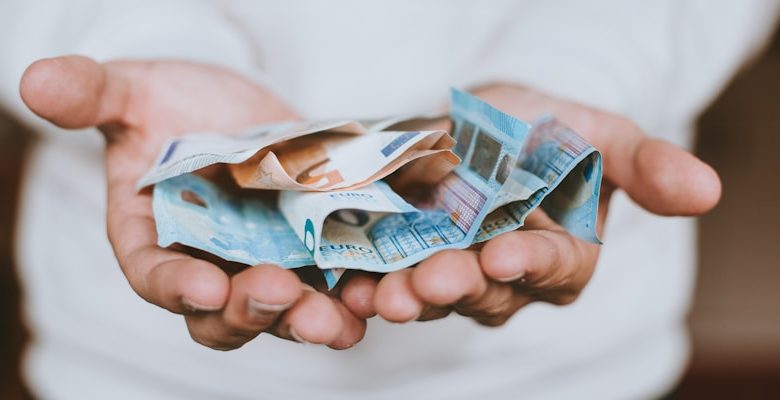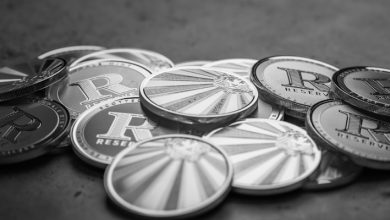How to Avoid NFT Scams and Frauds

- Understanding the basics of NFTs
- Spotting red flags in NFT transactions
- Researching the legitimacy of NFT projects
- Protecting your digital assets from scams
- Tips for securely buying and selling NFTs
- Navigating the evolving landscape of NFT fraud prevention
Understanding the basics of NFTs
NFTs, or non-fungible tokens, have become increasingly popular in the digital world. These unique digital assets represent ownership of a specific item or piece of content using blockchain technology. Understanding the basics of NFTs is essential for anyone looking to invest in or create their own NFTs.
NFTs are different from cryptocurrencies like Bitcoin or Ethereum because they are indivisible and unique. Each NFT has a distinct value and cannot be exchanged on a one-to-one basis with other tokens. This uniqueness is what makes NFTs so appealing to collectors and creators alike.
One of the key features of NFTs is that they are stored on a blockchain, which is a decentralized and secure digital ledger. This means that the ownership and authenticity of an NFT can be easily verified by anyone with access to the blockchain. This transparency helps prevent fraud and scams in the NFT market.
When buying or selling NFTs, it is important to do your due diligence and research the platform or marketplace where the transaction is taking place. Look for reputable websites and marketplaces that have a track record of hosting legitimate NFT sales. Be wary of any offers that seem too good to be true, as they may be scams designed to exploit unsuspecting buyers.
By understanding the basics of NFTs and taking the necessary precautions, you can avoid falling victim to scams and frauds in the NFT market. Remember to always verify the authenticity of an NFT before making a purchase, and only transact with trusted sellers and platforms. With the right knowledge and vigilance, you can safely navigate the world of NFTs and enjoy the benefits of owning unique digital assets.
Spotting red flags in NFT transactions
When engaging in NFT transactions, it is crucial to be vigilant for any potential red flags that could indicate a scam or fraud. By recognizing these warning signs early on, you can protect yourself from falling victim to malicious actors seeking to exploit the growing popularity of NFTs.
One common red flag to watch out for is sellers who pressure you to make a quick decision without providing adequate information or time for due diligence. This urgency tactic is often used to rush buyers into making impulsive decisions without fully understanding the risks involved. Be wary of anyone who tries to push you into a transaction before you have had a chance to do your own research.
Another warning sign is sellers who refuse to provide verifiable proof of ownership or authenticity for the NFT in question. Legitimate sellers should be able to provide documentation or verification from reputable sources to confirm the legitimacy of the digital asset. If a seller is unable or unwilling to provide this information, it could be a sign that they are not acting in good faith.
Additionally, be cautious of deals that seem too good to be true. If a seller is offering an NFT at a significantly lower price than its market value or claiming unrealistic returns on investment, it could be a red flag for a potential scam. Remember, if something seems too good to be true, it probably is.
In summary, it is essential to approach NFT transactions with a critical eye and be on the lookout for any red flags that could indicate fraudulent activity. By staying informed, conducting thorough research, and trusting your instincts, you can reduce the risk of falling victim to scams and frauds in the fast-evolving world of NFTs.
Researching the legitimacy of NFT projects
When researching the authenticity of NFT projects, it is crucial to conduct thorough due diligence to avoid falling victim to scams and frauds. One effective way to verify the legitimacy of an NFT project is by examining the team behind it. Look into the background of the developers, artists, and other key individuals involved in the project. Check if they have a solid track record in the industry and if they are transparent about their identities.
Additionally, scrutinize the whitepaper of the NFT project to understand its objectives, roadmap, and underlying technology. A well-written whitepaper should provide detailed information about the project’s vision, tokenomics, and use cases. Be wary of projects that lack a whitepaper or have one that is vague or incomplete.
Furthermore, look for any red flags such as unrealistic promises of high returns, lack of community engagement, or a rushed launch without proper testing. Engage with the project’s community on social media platforms and forums to get a sense of their sentiments and experiences. Genuine projects usually have an active and supportive community that is willing to answer questions and address concerns.
In conclusion, conducting thorough research is essential in identifying legitimate NFT projects and avoiding scams. By scrutinizing the team, whitepaper, and community engagement of a project, you can make informed decisions and protect yourself from fraudulent schemes. Remember to exercise caution and skepticism when approached with offers that seem too good to be true.
Protecting your digital assets from scams
Protecting your digital assets from scams is crucial in the world of NFTs. Here are some tips to help you avoid falling victim to fraudulent schemes:
- Do your research before investing in any NFT project. Look into the background of the creators and the reputation of the platform hosting the NFTs.
- Avoid deals that seem too good to be true. If an offer seems too good to be true, it probably is.
- Be wary of phishing scams. Do not click on suspicious links or provide personal information to unknown parties.
- Use secure wallets to store your NFTs. Make sure to use strong passwords and enable two-factor authentication for added security.
- Stay informed about the latest scams and frauds in the NFT space. By staying educated, you can better protect yourself from potential threats.
By following these guidelines, you can help safeguard your digital assets and minimize the risk of falling victim to NFT scams and frauds.
Tips for securely buying and selling NFTs
When it comes to securely buying and selling NFTs, there are a few key tips to keep in mind to protect yourself from scams and frauds. By following these guidelines, you can ensure a safe and successful transaction.
- Do thorough research on the NFT marketplace or platform you plan to use. Look for reviews, ratings, and feedback from other users to gauge its credibility.
- Avoid sharing sensitive information such as your private keys or wallet passwords with anyone. Keep your digital assets secure by using secure wallets and keeping your login credentials confidential.
- Verify the authenticity of the NFT you are interested in buying. Check for any copyright or trademark infringements, and ensure that the creator has the rights to sell the digital asset.
- Be cautious of deals that seem too good to be true. If a seller is offering an NFT at a significantly lower price than its market value, it could be a red flag for a potential scam.
- Consider using escrow services for high-value transactions. This third-party intermediary can help facilitate the exchange of funds and NFTs between buyers and sellers, providing an added layer of security.
By following these tips, you can minimize the risk of falling victim to NFT scams and frauds, and enjoy a safe and rewarding experience in the digital asset marketplace.
Navigating the evolving landscape of NFT fraud prevention
When it comes to navigating the ever-changing landscape of NFT fraud prevention, it’s essential to stay informed and vigilant. There are several key strategies that can help you avoid falling victim to scams and frauds in the NFT space.
- Research the platform or marketplace before making any purchases. Look for reviews, ratings, and feedback from other users to ensure legitimacy.
- Verify the authenticity of the NFT by checking the creator’s reputation and credentials. Look for any red flags or inconsistencies that could indicate a potential scam.
- Avoid sharing sensitive information, such as your private keys or wallet addresses, with anyone you don’t trust. Be cautious of unsolicited messages or requests for personal information.
- Consider using a secure wallet to store your NFTs and enable additional security measures, such as two-factor authentication, to protect your assets from unauthorized access.
By following these tips and staying vigilant, you can minimize the risk of falling victim to NFT scams and frauds. Remember that prevention is key when it comes to safeguarding your investments in the rapidly growing world of NFTs.



